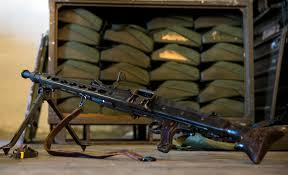Der Spiegel on arms export, pragmatism and moralism, sort of - in Germany and elsewhere:
'In pragmatic terms, Germany is an important country for the defense sector. Based on 2014 numbers by the Wifor Institute, a German economics research institute, the industry employs 136,000 people and creates a direct gross value added (GVA) of 12.2 billion euros. The sector isn't huge. Only four German companies count among the Top 100 firms in the field, but their products are valued internationally, because they are made by highly skilled workers, often in small- to mid-sized businesses. Last year, the German government approved arms exports worth 4.8 million euros.'
(...)
'As a party, the SPD know that they're in a strong negotiating position. Because even if Merkel's government were to collapse, given the other option available for forming a government, the conservatives would still likely be alone in their pragmatism. The Green Party, after all, would also likely insist on strict limitations on arms exports.
During Merkel's attempt to form a coalition government with the Greens in 2017, arms exports already emerged as a point of contention. "We had negotiated a complete stop to arms exports to Saudi Arabia," says Agnieszka Brugger, deputy head of the Green's parliamentary group. But the third party in the talks, the business-friendly Free Democrats, broke off negotiations before a government could be formed.
The conservatives now fear the SPD could campaign on the issue in upcoming state elections in Germany. "It would be a shame if the Social Democrats made arms-export policy a campaign issue," says Marco Wanderwitz, a senior official in the German Interior Ministry. "If the SPD were to reposition itself at this point, it would become even more alienated from the conservatives. You have to remind your coalition partner that politics consists of compromises."
Whether that compromise takes shape now lies in the hands of Heiko Maas of the SPD, who is likely the most conflicted over the need for a morally reconcilable but also pragmatic policy. As foreign minister, he has an interest in ensuring that Germany doesn't take a special path in Europe without coordinating with its partners. At the same time, he also understands his party's sensitivities.
His hope so far has been to keep his coalition partner at bay. When Maas met with representatives of the CDU-led Economics Ministry and the Chancellery in December to extend the export moratorium, he referred to the peace negotiations in the Yemen conflict, which were starting in Stockholm. He argued that if Saudi Arabia and its allies in the war were to negotiate a cease-fire with the rebels, then this could be used as a reason to at least allow the arms exports that had already been approved. He said the moratorium could be extended by two months until that time.
But the foreign minister's calculations didn't pan out. At the moment, a fragile cease-fire is prevailing in Yemen, and little progress has been made on a planned United Nations observer mission to ensure the transport of aid. Maas will likely have difficulty convincing his fellow party members to shift course.'
Read the article here.
At least, one have to say, Germany feigns that there is more to life than sheer profits, sometimes torture and brutal totalitarianism cannot be treated as if it's business as usual. But don't forget the word: feigns.
